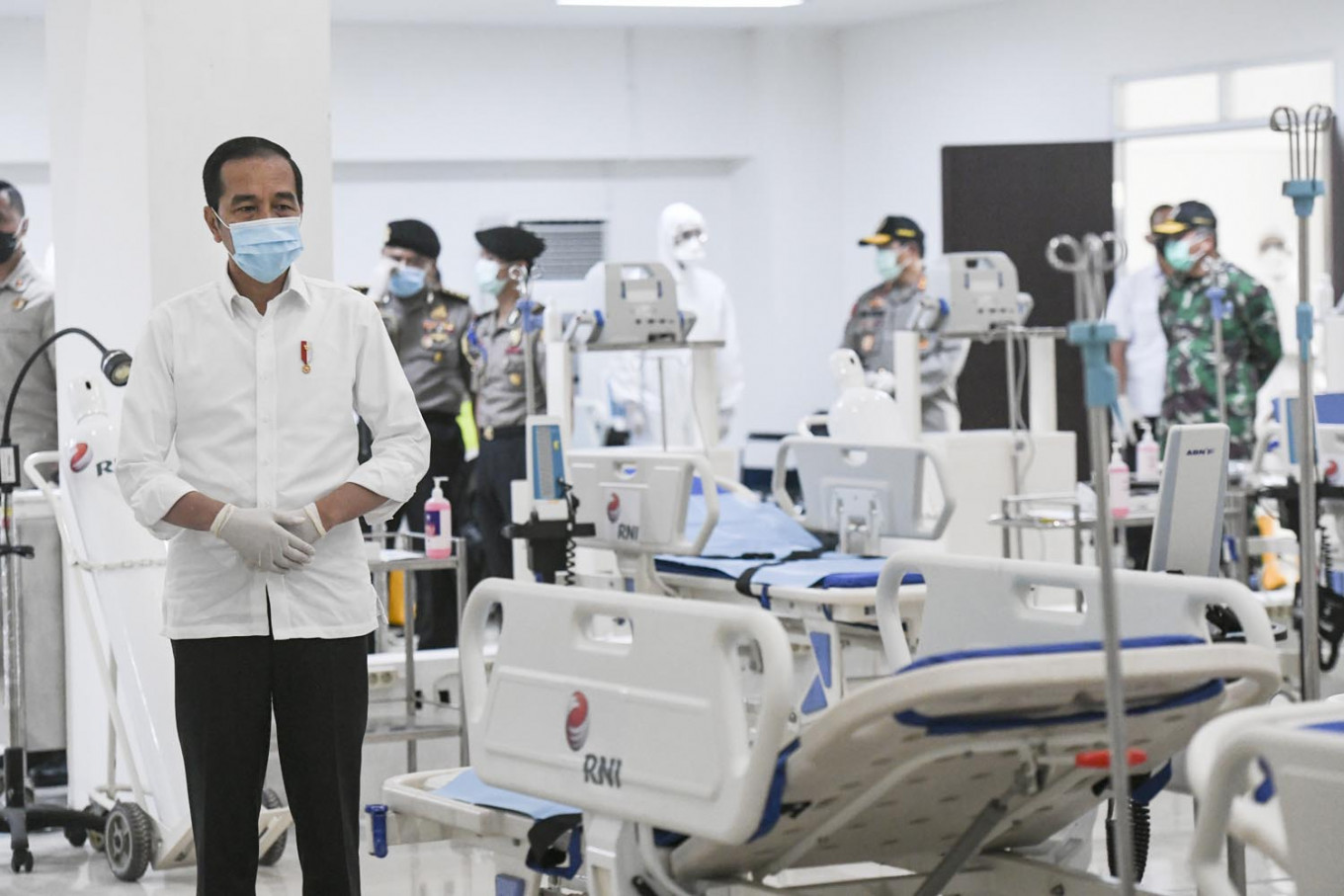Popular Reads
Top Results
Can't find what you're looking for?
View all search resultsPopular Reads
Top Results
Can't find what you're looking for?
View all search resultsTransparency the best policy
The lack of transparency has compromised the government’s own effort to cope with the pandemic.
Change text size
Gift Premium Articles
to Anyone
T
he lifting of the lockdown in Hubei province, China, late last month and in the city of Wuhan in early April is a testament to the laudable job that the Chinese government has done in dealing with the coronavirus outbreak. And considering that the country has a population of more than 1 billion people, the fact that China reported a little over 82,000 cases and 3,342 deaths is a good indication the effectiveness of the measures Beijing has taken to address the health crisis.
But that success story comes with its own cautionary tale. Had transparency principles been upheld, first the Chinese government itself could have rolled out a faster response and COVID-19 would not have exploded into a pandemic.
It is now widely reported that the initial slow response to clusters of patients stricken with a mysterious pneumonia had delayed a response from the Chinese government to what soon would be a global pandemic. The New York Times has reported that in the wake of the Severe Acute Respiratory Syndrome (SARS) epidemic in 2002, China put in place an infectious disease reporting system that could have been automatic. Yet local health officials in Wuhan, who did not want to share bad news, withheld information about the case from the reporting system. Beijing was kept in the dark and its response was postponed.
On Thursday, the Associated Press reported based on leaked internal documents that there was a week of public silence before the government finally decided to alert the public about a new pandemic. The initial attempt to walk a fine line between alerting the public and avoiding panic has now made COVID-19 a global pandemic that has infected 2 million people.
In his early response to deal with COVID-19, President Joko “Jokowi” Widodo appeared to have also walked that fine line between protecting the public and preventing mass hysteria. With President Jokowi, there’s also another complication: He needs to have the country’s economy running at normal speed. On March 14, Jokowi said he deliberately held back some information on COVID-19 cases to prevent the public from panicking.
The lack of transparency has compromised the government’s own effort to cope with the pandemic. To fight a fast-spreading pandemic like COVID-19, science matters and without sufficient information regarding the disease, it will be difficult to mount an effective response. The most practical use of data on COVID-19 cases is that we can have a mathematical model to predict when the pandemic will peak or if we can flatten the curve.
The government came to its senses on Wednesday, with President Jokowi announcing that all information regarding COVID-19 must be available to the public. Upholding transparency, especially in a democracy, may look like a no-brainer, but the decision was significant on many fronts.
Now, science can lead the way in the fight against COVID-19 and that should be a big deal for an administration that has been accused of being populist anti-scientism.
But in the grand scheme of things, this is also a win for democracy. Who says democracy is not suitable to deal with a pandemic?










